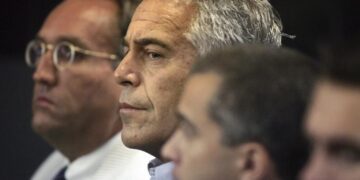Plato, in The Republic, complains that in democratic times a teacher “fears and fawns upon the pupils, and the pupils pay no heed to the teacher … or to their overseers either.” The youth ignore their elders, while those supposedly wiser and more experienced “are full of pleasantry and graciousness, imitating the young for fear they may be thought disagreeable and authoritative.” Augustine in his Confessions bemoans the intransigence of his students as well as their unwillingness to pay him. Thomas Hardy’s Jude the Obscure contrasts the academic seriousness of Jude Fawley with his classmates, whose commitment to their education leaves much to be desired.
Our generation may not have invented academic corruption, but we have gone a ways toward perfecting it. Still, it is worth remembering that every generation has its scoundrels and saints, good and bad students and teachers. In many ways the basics of education haven’t changed that much: There are things worth knowing that require much study; those that engage in that study seek to communicate what they’ve learned; the knowledge gained proves both useful and generative of personal growth. Granted, one can alter how such knowledge gets communicated, and one can diminish the authority of the teacher as well as the natural curiosity of the student (indeed, one might think of our school systems as devices for turning naturally curious five-year-olds into jaded and disengaged 18-year-olds), but you can’t completely efface the desire to know.
One shouldn’t despair too readily over our contemporary state of affairs. I’ve written widely on the derailment of our educational institutions and the winnowing of standards. If that’s all there was to the story, it would be difficult to explain why I’ve stuck with it for 30-plus years. The answer is simple: I’ve loved what I teach and who I teach, and I’ve been able to teach with a great deal of freedom. The average college professor knows he has an employer who exercises some authority over him and presents him with hoops he must jump through, but he also experiences a great deal of autonomy. I’ve been critical of my employer in print with no serious repercussions, and I’ve never been told not to teach material I’ve judged worthy.
More to the point, I’ve been fortunate to have my classes populated with bright, eager, hardworking young persons. Certainly there have been slackers and ne’er-do-wells, and some hardworking kids who don’t quite have it and other kids who have it but don’t work hard; but every year I’ve been in this profession, I’ve had students who I knew for a fact had both a better mind and a better soul than my own. It’s been a privilege to stand in front of them and sit alongside them and contribute in my own way to their development. A teacher who forgets this ought to do the honorable thing and find a new career.
As I said, we didn’t invent academic malfeasance, but we seem committed to the project. The academic enterprise, however, is resilient, and it’s no mystery why: To quote Aristotle, all men by nature seek to know. This desire can never be eradicated, and while we might dim its flame by not fueling it, we can never snuff it out. When things look dark, the love of learning may burn brighter than ever. What it needs is the right environment.
More HERE









